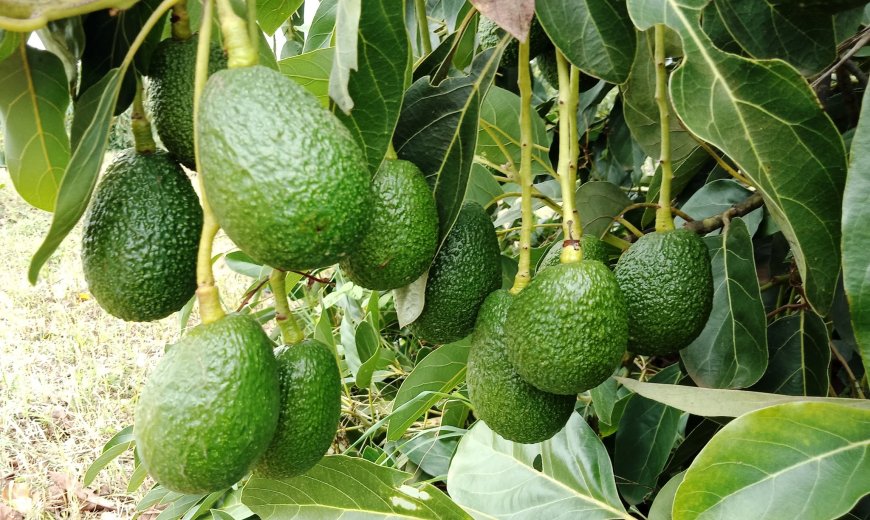Addressing phytophthora Root-Rot disease to sustain avocado production

Kiambu, Sunday May 28, 2023
KNA by Wangari Ndirangu
The government has been working on how to develop and introduce new technologies to support the growth of the avocado industry in the country.
Avocado is ranked 3rd after banana and mango in the country and Kenya is ranked the highest producer of avocado in Africa and 6th globally.
The government five years ago also marked avocado as one of the important crops for food security, proper nutrition and trade expansion but other than essential nutrients for good health, the crop is also expected to fetch farmers billions of shillings even as the government scales up an exportation programme
But with all the progress and achievement, all can go down the drain if the biggest challenge and threat to the avocado production of Phytophthora root rot, a serious and important disease of avocado not only in the country but worldwide is not addressed.
The disease is a limiting factor in avocado production in all varieties and the pathogen attacks the feeder roots which can result in death of the tree.
Speaking to KNA during the closure of Kenya Avocado Industry Support Project (KAISP) that has been running for the last 10 years, Dr Ruth Amata Senior Research Officer from Kenya Agricultural Livestock and Research Organisation (KALRO) said that the disease which is normally in the soils kills the roots of avocado trees and this is dangerous.
“This is the most serious disease of avocado world-wide, kills trees at any age and can seriously affect new plantings or seedlings with the progressive loss of trees making orchards uneconomic,” she said
Root rot, she explained, is the pathogen which is the agent that kills the roots and eats into the roots beginning with the younger roots into the older bigger roots and one of the symptoms is the crop ends up with yellowing of leaves later they fall off and eventually the entire avocado tree dries up.
Dr Amata added that as a result of this, the farmers end up progressively gradually losing tree by tree hence reducing greatly on the yield per acre.
KALRO, she noted, has been training farmers through building their capacity on the disease so that they may be aware and be able to pick out the symptoms of this disease before they even start an avocado orchard.
“The farmers should make sure they buy their seedlings from reputable, reliable nurseries that observe high levels of hygiene because this particular disease is soil borne and comes with the seedling right from the beginning when farmers are starting their orchards. They need therefore to start off with seedlings that are phytophthora free and this can only be done if they source their seeds from reliable dealers”, Dr. Amata said.
KALRO, the scientist said produces disease-free seedlings and this can be bought from a good number of the KALRO centers including KALRO Thika, Kabete, Muguga and also a good number of the KARLO centers and shops that can avail the seedlings.
Dr Lusike Wasilwa, Director Crop Systems at KALRO acknowledged that the phytophthora root rot was initially a minor pest but now it’s moving towards major but was quick to add that the government is on alert.
Through the 10 year KAISP project that was getting support from the New Zealand Institute and Food Research Limited (FPR), Dr. Lusike said they are now capacity-building the farmers and have now reached a point where it will bring in the biological system using Trichoderma, the biological controls to manage things like phytophthora disease.
“Kenya is gravitating towards biological systems where a farmer can actually produce biological controls to be able to manage the diseases”, she noted.
She gave an example of mosquito bugs which cannot be seen, false codling moth (FCM) which is also another problem where there are both the biological systems to control and also the pesticide while the fruit fly that also affects avocados can be managed using a trap instead of spraying the trees.
The experts say that the only way to manage all these diseases is through use of field practices which harbour a lot on field hygiene since the disease spreads through the soil and anything that can transport soil from one point to another can be able to transport the pathogen to a non-infected area even within the same farm.
“Any tools that the farmer uses can be able to spread the problem even shoe, boots, vehicles moving within an infected field, through water and also heavy rains can be able to move the soil from one point to another with fast speed from an infected area to a non-infected area”, Dr Amata said.
Dr Bob Fullerton from the New Zealand Institute for Planet Food Research and the Principal Investigator of the project said that if a farm is contaminated with the Phytophthora root rot disease, it would be very hard to get rid of it and that spraying can take as long as five years before the risk goes down.
“It is hard to get rid of the disease once it's on either the ornamentals, weeds and also the plants. it will never go away that is why particularly for the developed country it is important to ensure you get seeds that are disease free and from recommended nurseries”, he said.
Through the project, Dr Fullerton said they introduced testing services to be able to detect the pests and in partnership with KALRO have been working towards developing and introducing new and improved technologies to support the growth of avocado industry in Kenya and also ensure sustainable future for the industry.
Courtesy ; K. N. A
What's Your Reaction?



































































































































































































































































































